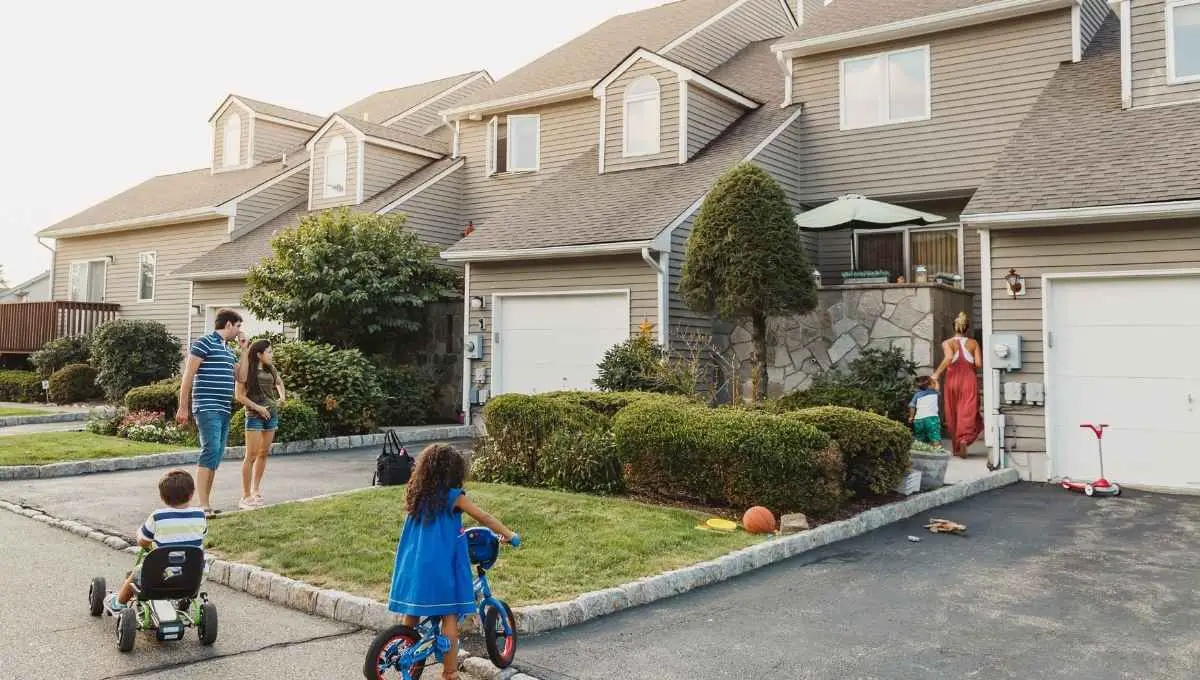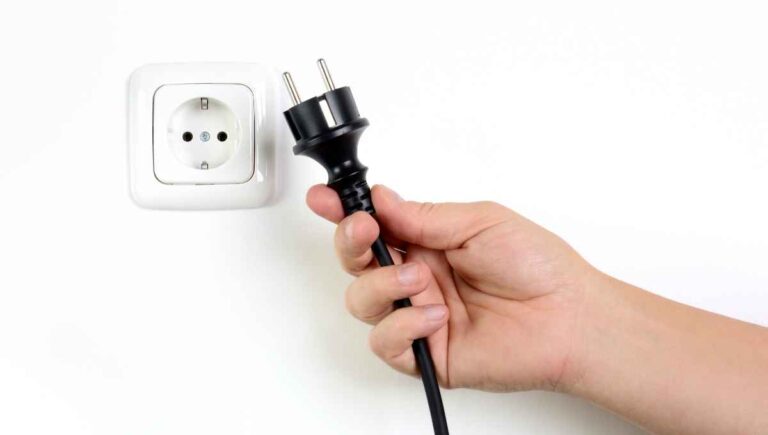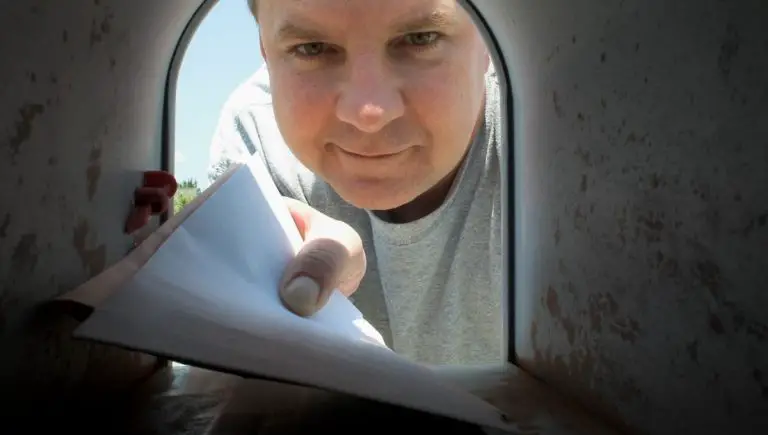How to Shut Down Your Neighbors Airbnb (Doing This Worked!)

Having an Airbnb operating right next door to your home can be frustrating. The constant flow of strangers, loud parties, and vehicles parked everywhere are enough to make anyone want to have their neighbor’s Airbnb shut down immediately. But where do you begin?
The quickest way to get your neighbor’s Airbnb shut down is by politely speaking with your neighbor first about your concerns. If this fails, you can file complaints with your Airbnb and your municipality, which usually will lead to legal action being taken against them.
There is hope in sight when it comes to crashing this Airbnb party your neighbor refuses to stop throwing. With assistance from Airbnb themselves and your city’s bylaws, there are several routes you can take to win back your peace and quiet.
If you want to learn exactly how to shut down your neighbor’s Airbnb, read on and take notes!
This post contains affiliate links from Amazon and other stores. This means Yard Blogger may earn a commission if you make a purchase using any of our links. Please refer to our full affiliate disclosure policy for full details.
Here’s a Quick Pro Tip!
Getting into a dispute with your neighbor is never fun, and these things can often drag on forever.
In situations like this, catching what’s happening on video will be all the evidence you need to report your neighbors and win.
Having a decent security system like a Ring Video Doorbell or Outdoor Security Cameras (both on Amazon) is a smart thing to do in this situation. After all, a picture is worth a thousand words!
- Can I Stop My Neighbor From Running an Airbnb?
- How Do You Shut Down an Airbnb?
- Can Neighbors Complain About Airbnb?
- Do you Need Permission to Do Airbnb?
- Where is Airbnb Not Allowed?
- Can I Sue My Neighbor for Running an Airbnb?
- How do I Report a Neighbor on Airbnb?
- Airbnb Noise Rules
- How do I Deal With a Noisy Airbnb?
- Can you Anonymously Report an Airbnb?
- Airbnb Destroying Neighborhoods
- Pros and Cons of Airbnb in Your Neighborhood
- Are Airbnb's Legal in Residential Areas?
- Airbnb Contact Number
- Airbnb Contact Email Address
- Related Questions
- Final Thoughts
Can I Stop My Neighbor From Running an Airbnb?
If your neighbor is using their home as an Airbnb and it is causing disturbance to you in any way, you have the right to try and stop your neighbor from operating the Airbnb.
There are several actions you can take when you have finally had enough. In this next section below, we’re going to show you a detailed list of steps that you can start taking today to get that annoying Airbnb shut down for good!
How Do You Shut Down an Airbnb?
Maybe you don’t feel safe in your neighborhood anymore, or perhaps you just can’t stand the noise coming from your neighbor’s home any longer. Whatever the case, it’s time to take action to shut down their Airbnb once and for all.
Here are the steps you can take to make this happen.
- Discuss With Your Neighbor
- Check Your Municipal Laws
- Check the Laws of Your Community
- Report the Property to Airbnb
- File a Lawsuit
1. Have a Discussion With Your Neighbor
Before you take any serious action against your neighbor, it’s important to first have a discussion with them. Perhaps they are completely unaware of how you are feeling and are not meaning to cause any disturbance.
Discuss how their Airbnb is making you and your family feel. Are you feeling unsafe? Can you not sleep properly because of the noise? Has crime increased in your area? Whatever you are feeling, express yourself very clearly.
If your neighbor appears to be empathetic, outline some things they can do to decrease the disturbances you are experiencing and come to a conclusion that you are both satisfied with.
If that matter resolves itself over the next month, great! Your work is done. If, however, your neighbor couldn’t care less, read on to learn what actions to take next.
You might also enjoy our post on How to Shut Down Your Neighbors VRBO
2. Check Your Municipal Laws
Airbnb has tight regulations in some areas – such as New York, Paris, and Barcelona – and looser regulations in other areas such as San Francisco and London. Laws are continuously changing, so if you read a law last year about Airbnb in your area, it may have changed.
The first step you want to take is to check that your neighbor’s Airbnb is legal. Laws change city by city, so search for the Airbnb laws in your specific state.
The best way to do this is to go to your city’s government-run website and search for “Airbnb”. Here you will find resources that will inform you of all the regulations that Airbnbs must follow.
Here’s a Quick Pro Tip!
A quick and easy way to know if your neighbor’s Airbnb is legal is to find their ad and in the description, there should be a “license number” at the very bottom.
If there isn’t a number displayed, it’s likely they’re cutting some corners.
3. Check the Laws of Your Community
If it turns out that your neighbor is following your city’s laws, there is still lots of hope. Communities, apartment buildings, and other residential properties are allowed to set their own rules and regulations when it comes to Airbnb.
If you live in a large apartment building, contact the company that owns it and discuss the situation with them. If you live in a condominium community, contact the homeowner’s association (HOA).
Whichever type of residential property you are dealing with, contact the community association and try to find out if Airbnbs are even allowed.
You might also enjoy our post on How to Keep Neighbors From Parking in Front of My House
4. Report the Property to Airbnb
So, you’ve done your research and you have found out that your neighbor’s Airbnb is 100% legal. It is now time to file a complaint with Airbnb. Regardless of the type of rental property, it is mandatory that all Airbnb’s respect their neighbors.
This is laid out by Airbnb themselves. If your neighbor is disrespecting you in any way, this is grounds enough to get their rental property shut down.
Airbnb has a Neighborhood Support team set in place ready to deal with your concerns. You can go to their neighborhood support page and fill out a quick form that will open up a case.
You have to provide the listing number or address of the property, send a message to the host, and also an additional message to Airbnb discussing all the concerns.
Airbnb will then send you a confirmation email and begin working on your case. One step closer!
5. File a Lawsuit
If all else fails, it’s time to start considering filing a lawsuit. While this may be an expensive and risky endeavor, it may also pay off in the end.
Your best bet is to get in touch with a lawyer who will likely move forward with a nuisance or breach of contract lawsuit.
It would be ideal to not have the situation come to this – because dealing directly with the law is a lengthy and expensive process – but it may be your last option.
You might also enjoy our post on How to Find Out if Your Neighbor Is Renting
Can Neighbors Complain About Airbnb?
Neighbors have several resources they can utilize to complain about an Airbnb that is causing the disturbance. Neighbors can complain straight to Airbnb, to their community organizers, and/or to their city.
If an Airbnb rental property is causing you and your family unrest, there is hope. One of Airbnb’s main rules that all hosts must follow is that the hosts have to respect their neighbors.
Hosts must ensure that neighbors aren’t being disturbed by excessive noise, are not feeling unsafe due to more strangers in their area, and are not having to deal with renters directly.
Do you Need Permission to Do Airbnb?
To become an Airbnb host, you need permission from your landlord (if you are renting), from your community association (whether you live in a condo or a suburb), from your city, and from Airbnb.
Hosting on Airbnb is a business and it is taken seriously. There is a lot of due diligence that one has to do to become a legal host that is abiding by all rules and regulations of their community and city.
Where is Airbnb Not Allowed?
The following cities have implemented restrictions on short-term rentals such as Airbnb: Calabasas, California; New York City, New York; San Francisco, California; Honolulu, Hawaii; Las Vegas, Nevada; and New Orleans, Louisiana.
In many of these cities, it is against the law to rent out any property for less than 30 days, some even 90 days. If hosts choose to ignore these laws, they will be exposed to penalties and fines.
Can I Sue My Neighbor for Running an Airbnb?
You have the option to sue your neighbor for running an Airbnb if it is causing you disturbance. You can propose a nuisance lawsuit to your lawyer but this is an expensive endeavor.
You can sue for either private nuisance or public nuisance. In most cases of Airbnb disturbances, you would likely be sued for public nuisance, although private nuisance could also be likely.
A public nuisance occurs when a person (your neighbor) causes a nuisance that endangers the comfort of the public. If you are affected by offensive noise, you can apply for noise abatement.
Private nuisance occurs when a person is interfering with the enjoyment of someone else’s land. This could also be used for Airbnb cases if there is excessive noise, garbage left behind in your yard, or you’re feeling unsafe.
To learn more about nuisance lawsuits, click here.
How do I Report a Neighbor on Airbnb?
Airbnb is well prepared for neighbor complaints. You can visit their website where they have a designated neighborhood team ready to help you resolve any issues.
You can visit the Airbnb Neighborhood Support page to report a neighbor that has been abusing their rights as an Airbnb host. The neighborhood support team at Airbnb will ask you to fill out a form explaining your situation and will open a case for you.
Airbnb Noise Rules
On Airbnb’s website, they suggest to the hosts to develop a policy that outlines how they can control the amount of noise that may occur when renting.
This policy can include matters like if babies, pets, or parties are allowed. If parties are allowed then how many people can be invited over and how late can the party go.
Regardless of policies, if noise is frequently excessive then there are grounds to file a nuisance complaint that could turn into a lawsuit.
You might also enjoy our post on Neighbor Has Too Many Cars at Their House
How do I Deal With a Noisy Airbnb?
The best way to deal with a noisy Airbnb is to contact the host directly. If you do not see your neighbor often, then try and find the Airbnb listing and contact them directly on Airbnb.
If your neighbor does not do anything about the noise, then you can complain directly to Airbnb through their Neighbor Support service.
Can you Anonymously Report an Airbnb?
When you use the Neighborhood Support service on Airbnb, you can file a complaint to the host you are dealing with. You will be asked to provide your contact details but they will remain anonymous.
Using this service is a great way to start the complaint process professionally. Airbnb will receive your message, open a case file for you, and begin looking into the issue.
Your neighbor will know that someone complained but they will not know exactly who it was.
Airbnb Destroying Neighborhoods
Short-term rentals are a lucrative business for the hosts but a nightmare for neighborhoods. Airbnb’s have become such a nuisance in some areas that larger cities are banning short-term rentals altogether to save their communities.
A North Texas family has to brace for rowdy parties every single weekend ever since their neighbor started renting out his home as an Airbnb.
Large SUVs take up the neighbor’s driveway and end up spilling over to their yard, ruining their grass. After a long night of excessive noise and not sleeping, the neighbors are then forced to pick up the trash left behind in their yard.
Side Note: Check out this article if your neighbors are parking in front of your house!
A study was conducted that showed a strong correlation between the number of Airbnbs in Boston and an increase in crime. It is no surprise that petty and violent crime can break out when quiet communities suddenly turn into holiday destinations.
Having beautiful homes listed on the internet for everyone to see doesn’t help either.
Common Airbnb Neighbor Complaints
- Excessive noise
- Shootings
- Rowdy parties that include fighting and screaming
- Lots of cars on the property and on the road
- Garbage left behind from parties
- Not following social distancing guidelines
- Longer tenants not taking care of the property
- Drug use outside
- Causing stress on family dogs
Pros and Cons of Airbnb in Your Neighborhood
An advantage to having Airbnbs in your neighborhood is that it promotes local tourism and improves the local economy. Disadvantages include local violence and increased cost of living.
Pros
- Local Tourism and the Economy
Airbnb is a way for tourists to live like locals. Since Airbnb provides a wide variety of rental properties at all sorts of prices, tourists are more likely to visit towns that they otherwise wouldn’t because of steep hotel costs.
Increasing tourism increases the local economy; so, these Airbnb guests will be supporting local restaurants and shops.
Cons
- Violence
It is no surprise that Airbnbs promote violence in communities. Violence can occur when guests throw parties and fights break out or car accidents happen. Airbnbs are also a target for robberies since Airbnbs can be found online by anyone and since tourists usually have their guard down when on vacation.
- Increased Cost of Living
Perhaps a town or city’s tourism has boomed thanks to some Airbnbs making tourism accessible. But now the once-quiet and affordable community has turned into a holiday destination with skyrocketing cost of living pushing locals away.
You might also enjoy our post on How to Stop Neighbors From Knocking on Your Door
Are Airbnb’s Legal in Residential Areas?
Airbnbs are legal in some residential areas and illegal in others. To check if an Airbnb is legal in a certain area, check with the city first, then the residential community.
Laws of Airbnbs vary greatly depending on the laws set by the city and the rules set by the community.
In general, if your city and your community allow Airbnbs, then the rental is legal considering the host has made the property legal.
Airbnb Contact Number
To speak to Airbnb by phone you can dial +1-844-234-2500. For this number you will need to have an Airbnb account set up as the operator will ask you for the phone number associated with your account.
Airbnb Contact Email Address
Airbnb does not provide an email for customer service. The best way to contact them without calling is to go to the Airbnb contact page. Here you will be put in touch with a bot through your Airbnb messages.
Related Questions
Is Airbnb Bad for Neighborhoods?
Airbnbs can either be great for neighborhoods or a total nightmare. This all depends on the guests of the Airbnb and if the host has everyone’s best interest at heart.
When Airbnbs turns into party central, that’s when neighbors can start to lose their patience. But if the host is careful of who they rent to and has a strict noise policy, it’s like Airbnb doesn’t even exist.
What Happens if You Get a Noise Complaint in an Airbnb?
The guest of an Airbnb could be personally fined if they receive a noise complaint while staying in an Airbnb.
If a noise complaint was delivered from the police, then it is likely that you are disturbing your neighbors and they called in the complaint. If you continue to create excessive noise, then you could be fined for nuisance. Your host will also be notified and he will likely leave you a bad review on Airbnb making it more difficult for you to rent in the future.
Final Thoughts
Now that we have gone over several ways of dealing with your annoying Airbnb neighbors, you can begin the processing of getting their operation to shut down for good.
Dealing with this type of issue is not easy and will likely take a lot of phone calls and time. However, but the gift of peace and quiet for you and your family will be worth it.
If you are feeling overwhelmed tackling this issue by yourself, ask your other neighbors for help. They are probably just as annoyed as you are.
Don’t forget, there is power in numbers!






